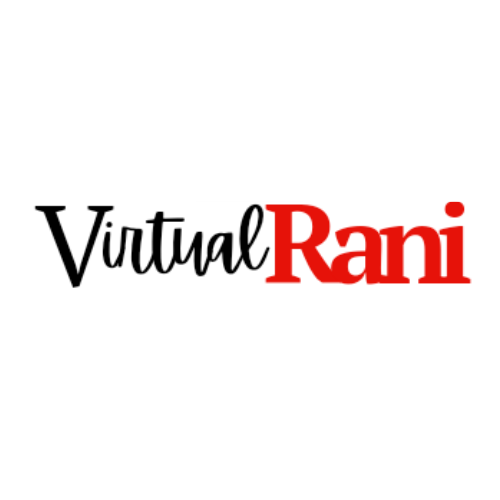Building Trust Through Ethical AI: A Coach's Guide to Responsible Technology Integration
The coaching industry stands at a pivotal moment. Artificial intelligence offers unprecedented opportunities to enhance client experiences, streamline operations, and deliver more personalized services. Yet with this power comes profound responsibility. How do we harness AI's potential while preserving the trust, confidentiality, and human connection that form the foundation of effective coaching relationships?
The answer lies in ethical AI implementation, a thoughtful approach that puts client welfare and data protection at the center of every technological decision.
The Trust Equation: Why Ethics Matter More Than Efficiency
In coaching, trust is everything. Clients share their deepest challenges, vulnerabilities, and aspirations. They expect absolute confidentiality and genuine care. When AI enters this sacred space, it must enhance rather than compromise these fundamental values.
Consider this: a single data breach or biased algorithm can destroy years of relationship-building. The short-term gains from cutting-edge AI tools pale in comparison to the long-term damage of lost client trust. Ethical AI implementation is essential for sustainable business success.
Core Principles for Ethical AI in Coaching
1. Transparency as the Foundation
Your clients deserve to know when and how AI touches their experience. This doesn't mean overwhelming them with technical details, but rather providing clear, understandable information about:
- Which processes involve AI (scheduling, note-taking, progress tracking)
- How their data is being used and analyzed
- What decisions are made by AI versus human judgment
- How they can opt out or request human-only interactions
Practical Application: Create a simple "AI Transparency Statement" that explains your technology use in plain language. Update it regularly and make it easily accessible to all clients.
2. Informed Consent: Beyond the Checkbox
True informed consent goes far beyond having clients sign a generic terms of service. It requires ongoing dialogue about how AI impacts their coaching journey.
Best Practices:
- Explain AI use during initial consultations
- Provide specific examples of how AI will be used in their program
- Offer alternative non-AI options when possible
- Regular check-ins about comfort levels with AI integration
- Clear processes for withdrawing consent
3. Data Privacy as Non-Negotiable
Client data in coaching contexts is particularly sensitive. Mental health insights, personal struggles, and private goals require the highest levels of protection.
Essential Safeguards:
- End-to-end encryption for all data storage and transmission
- Minimal data collection (only what's necessary for service delivery)
- Regular security audits and updates
- Clear data retention and deletion policies
- Geographic data storage considerations (especially for international clients)
4. Bias Prevention and Mitigation
AI systems can perpetuate or amplify human biases, potentially affecting coaching recommendations, progress assessments, or client categorization.
Proactive Measures:
- Regular bias testing of AI tools and algorithms
- Diverse data sets for training AI systems
- Human oversight for all AI-generated insights
- Cultural sensitivity training for AI applications
- Regular review of AI recommendations for patterns of bias
Practical Implementation: Your Ethical AI Checklist
Before Implementing Any AI Tool:
Due Diligence Phase:
- [ ] Research the AI vendor's data handling practices
- [ ] Verify compliance with relevant privacy regulations (GDPR, CCPA, etc.)
- [ ] Understand where client data will be stored and processed
- [ ] Review the AI system's training data and bias testing
- [ ] Assess the tool's transparency and explainability features
Client Communication Phase:
- [ ] Update privacy policies and terms of service
- [ ] Create client-friendly explanations of AI use
- [ ] Develop consent processes for AI integration
- [ ] Plan rollout communication strategy
- [ ] Establish feedback mechanisms for client concerns
During AI Integration:
Monitoring Phase:
- [ ] Regular bias audits of AI outputs
- [ ] Client feedback collection on AI experiences
- [ ] Performance monitoring (accuracy, fairness, effectiveness)
- [ ] Staff training on ethical AI use
- [ ] Documentation of AI decision-making processes
Ongoing Governance:
- [ ] Quarterly privacy and security reviews
- [ ] Annual ethical AI policy updates
- [ ] Regular staff education on emerging AI ethics issues
- [ ] Client communication about any changes in AI use
- [ ] Incident response planning for AI-related issues
Sample Ethical AI Policy Template
[Your Coaching Business] Ethical AI Policy
Our Commitment: We use artificial intelligence to enhance, never replace, the human connection at the heart of coaching. Client privacy, consent, and wellbeing guide every technological decision.
AI Applications in Our Practice:
- Administrative tasks: [Specify which ones]
- Progress tracking: [Explain how]
- Content personalization: [Detail the process]
Your Rights:
- Full transparency about AI use in your coaching journey
- The right to opt out of AI-enhanced services
- Access to human-only alternatives for any AI process
- Regular updates about changes in our AI practices
Our Safeguards:
- End-to-end encryption of all client data
- Regular bias testing of AI systems
- Human oversight of all AI recommendations
- Strict data minimization practices
- Annual third-party security audits
Contact: Questions about our AI use? Reach out to [contact information] for immediate clarification.
The Future of Ethical AI in Coaching
As AI technology evolves rapidly, so too must our ethical frameworks. The coaching professionals who thrive in this new landscape will be those who view ethical AI not as a constraint, but as a competitive advantage - a way to build deeper trust, deliver better outcomes, and create sustainable business growth.
The goal isn't to avoid AI, but to embrace it responsibly. By putting client welfare first, maintaining transparent communication, and implementing robust safeguards, coaches can harness AI's power while preserving the human elements that make coaching transformational.
Remember: in a world increasingly dominated by artificial intelligence, your commitment to ethical practices becomes your most powerful differentiator. Clients will choose coaches they trust, and trust is built through consistent, transparent, and responsible action.
Taking Action
Start small, but start today. Review your current use of any automated tools or data collection practices. Ask yourself: would I be comfortable if my clients knew exactly how their information is being used? If the answer is anything less than "absolutely," it's time to make changes.
Your clients' trust is your most valuable asset. Protect it with the same care you'd protect your closest relationships, because that's exactly what it is.
© Virtual Rani 2025. The information contained herein is provided for information purposes only; the contents are not intended to amount to advice and you should not rely on any of the contents herein. We disclaim, to the full extent permissible by law, all liability and responsibility arising from any reliance placed on any of the contents herein.














































































































